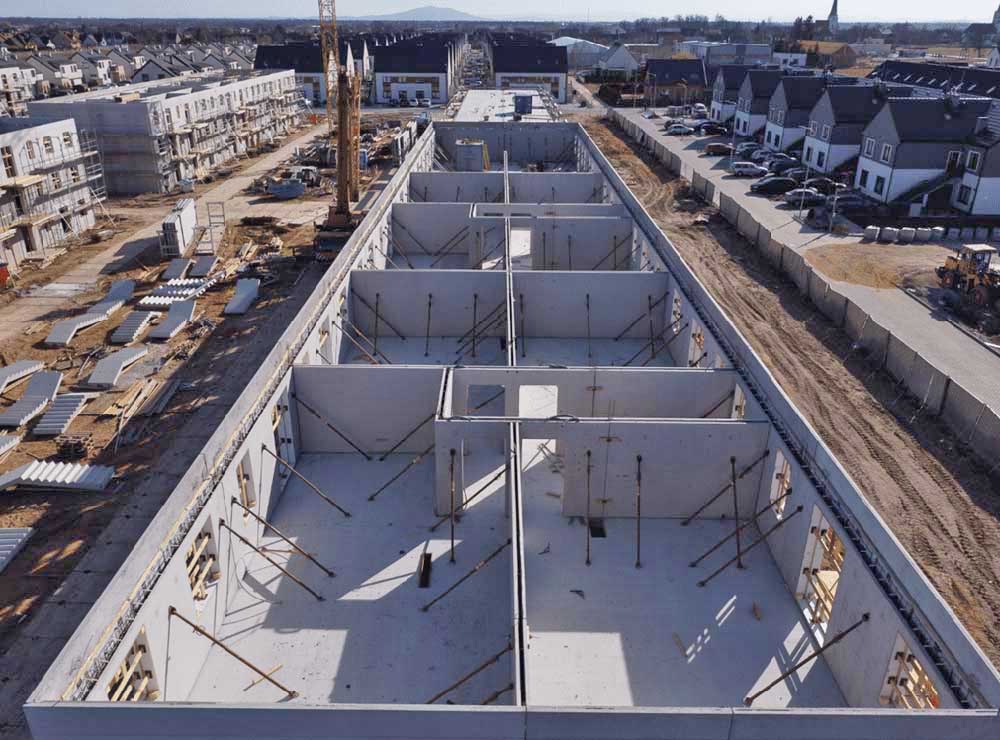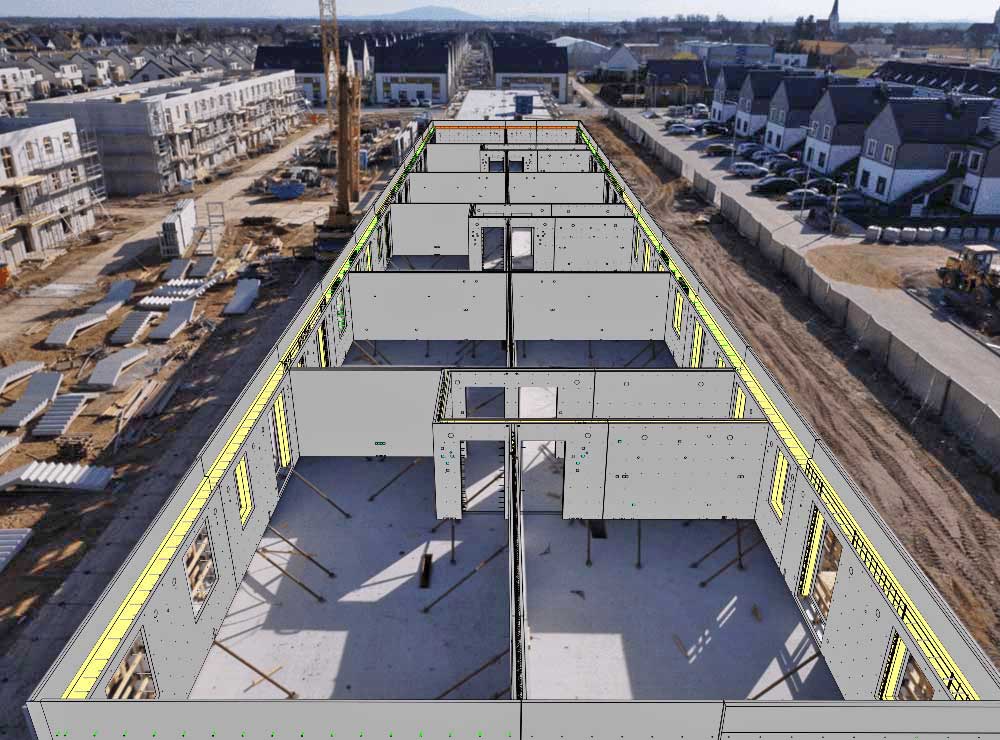Using precast elements, model-based planning and automated design to improve the efficiency and quality of residential construction.
This case study from MD Prefabrykacja shows how precast elements and model-based planning, alongside automated design and integrated production, can improve the efficiency and quality of residential construction.
MD Prefabrykacja is a Polish precast manufacturer that specialises in residential units, as well as commercial and office premises. The company uses Building Information Modelling (BIM) to plan and design every construction project, from single-family houses to large-scale commercial projects.
One of their recent projects is Green Lutynia, a residential complex of eight buildings near Wrocław, Poland. The complex consists of 19,882m² of precast walls, 17,500m² of precast slabs, 192 precast balconies and 96 precast staircases. The company also used innovative solutions such as thermal walls, which reduce heat loss and improve the indoor climate.
Design to build workflows
BIM is a key success factor for MD Prefabrykacja, as it enables excellent data coherence and exceptional precision in execution. The company uses Allplan Precast, a software solution that combines geometric data, material properties and detailed technical requirements in a 3D model. This allows the design team to plan the connections and interactions between precast elements and other construction components accurately and efficiently.
The design team also benefits from the fact that they only need a single file for the entire project, on which several people can work simultaneously in different areas. This facilitates communication within the team, minimises the risk of potential planning errors and reduces the time and cost of the work required on the construction site.
MD Prefabrykacja has also succeeded in optimising its workflows, from the first customer inquiry to the delivery of the precast concrete elements to the construction site. All processes are integrated and coordinated, which makes it possible to plan production precisely and control each phase of the process efficiently in real-time.
As a result, the precast manufacturer can guarantee the high quality of its products, significantly shorten delivery times and ensure planning and cost certainty for the general contractor. This is especially important in today’s fast-track projects, where delivery times are often extremely short.
Complete automation of precast elements
MD Prefabrykacja also leverages the advantages of automation in its production line. The precast manufacturer can create precise PXML machine files with Allplan Precast, which are essential for the operation of welding, cutting, bending and concrete spreading machines. With this capability, the company was able to fully automate its production line.
The modern design and production process not only simplifies the work of the general contractor but also supports the project realisation phase by optimising site activities. The prefabricated elements are delivered just-in-time on the construction site, which optimises transportation, storage and on-site assembly. By visualising the assembly sequence, activities can be precisely planned, contributing to the timely and efficient completion of the construction project.
To discover even more details about precast planning with Allplan Precast at Green Lutynia, you can read the full story here: www.allplan.com/references/precast-engineering/



